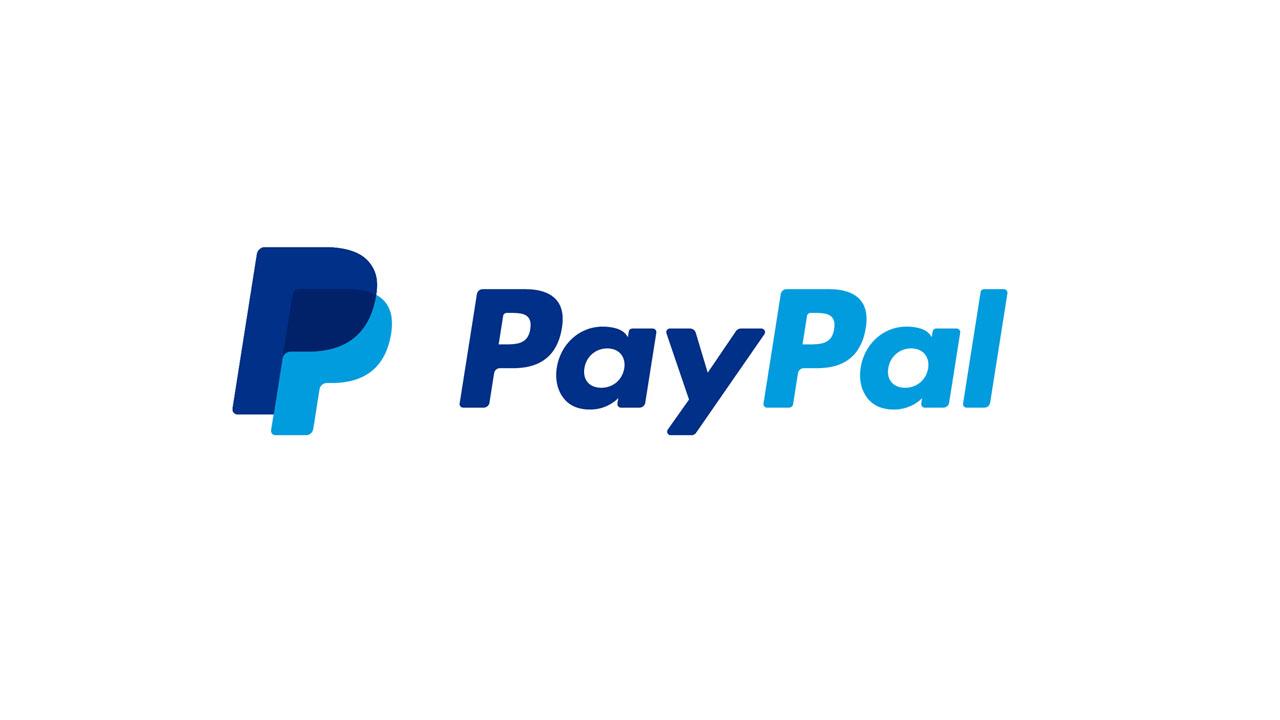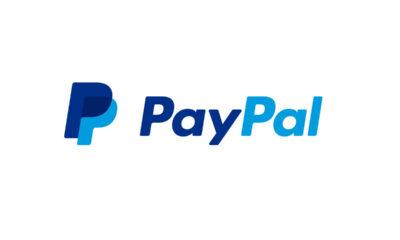Business
Luxury Hotel Market Size by Global Major Companies Profile, and Key Regions 2028

The global luxury hotel market size is projected to reach USD 238.49 billion by 2028, exhibiting a CAGR of 10.4% during the forecast period. Fortune Business Insights™ diagnoses this market in its report, titled “Luxury Hotel Market, 2021-2028”, which also states that the market value stood at USD 93.43 billion in 2020.
COVID-19 to Create Widespread Instability in the Hospitality Industry
The luxury hotel market growth is expected to shrink due to the COVID-19 pandemic, with a market registering an astonishing decline of 60.82% in 2020 and reaching a value of USD 119.55 billion in 2021. One main reason for this unprecedented downturn in the hospitality industry is the steep drop in tourist activities worldwide. As per the estimations released by the UN World Tourism Organization (UNWTO), export revenues from tourist arrivals fell by approximately USD 910 billion to 1.2 trillion in 2020, potentially shrinking the global GDP by 1.5% to 2.8%. Hotels, in particular, have been the hardest hit. For example, according to the American Hotel & Lodging Association (AHLA), 71% of hotels will not survive the next six months without federal assistance and 77% will have to lay-off workers. Luxury hotel chains, such as Le Meridien, have also resorted to cost-cutting, given the new travel bans and the possibility of movement restrictions. In sum, markets associated with the travel, tourism, and hospitality industry are set to enter a period of deep financial stress on account of the coronavirus.
Fortune Business Insights™ lists out all the luxury hotel market companies that are presently striving to reduce the impact of Covid-19 pandemic on the market:
- Mandarin Oriental Hotel Group (Quarry Bay, Hong Kong)
- Accor SA (Issy-les-Moulineaux, France)
- Shangri-La Asia Limited (Quarry Bay, Hong Kong)
- Four Seasons Hotel Limited (Toronto, Canada)
- Hyatt Hotels Corporation (Chicago, U.S.)
- The Indian Hotels Company Limited (Mumbai, India)
- Kempinski Hotels S.A. (Geneva, Switzerland)
- Hilton Hotels & Resorts (McLean, U.S.)
- InterContinental Hotels Group plc (Denham, U.K.)
- Marriott International, Inc. (Maryland, U.S.)
Emergence of Eco-friendly Luxury Hotels to Accelerate the Market
The development of hotels guided by the principles of environmental sustainability has altered perceptions surrounding luxury accommodations. The increasing environmental consciousness among new-age travelers has redefined the dynamics hitherto governing the hospitality industry, leading to the construction of eco-friendly luxury hotel brands. For example, the Andaz Maui at Wailea Resort in Hawaii has been conceived to minimize waste and emissions. The resort features a solar water heater system and variable speed chillers, while in the in-room settings, the glassware is made from recycled materials along with automated temperature controls. Similarly, at the Saffire Freycinet in Tasmania, Australia, Modwood is used as a wood substitute, LED technology is extensively utilized to make the entire facility energy-efficient, and natural cycle airflow systems have also been installed. The growing popularity of such premium properties in exotic locations is set to accelerate the expansion of this market.
Highlights of the Report
This report offers a detailed analysis of the various market drivers and trends, along with a careful study of the various market restraints. Moreover, the report contains a comprehensive examination of the regional dynamics of the market, as well as an in-depth evaluation of the competitive landscape of the market. In addition to these factors, the report supplies an exhaustive assessment of all market segments.
Market Segments
Based on room type, the market has been divided into luxury, upper-upscale, and upscale. By category, the market has been segmented into chain and independent. On the basis of geography, this market has been segregated into North America, Europe, Asia Pacific, South America, and the Middle East & Africa.
Regional Insights
High Spending Capacity of Travelers to Fuel the Market in North America
Backed by a high spending potential of consumers, North America is anticipated to dominate the luxury hotel market share during the forecast period. A report by the US Travel Association showed that in 2019, domestic travelers spent USD 972 billion, of which roughly 25% was spent on lodging facilities. Furthermore, expenditures on hotels and resorts of both domestic and international travelers rose by 4.1% in 2019 from 2018 levels, as per the report, indicating a strong willingness to spend on vacations by consumers. The North America market size stood at USD 30.66 billion in 2020.
In Europe, the market will enjoy a period of sustained growth as the continent is home to some most attractive tourist places on the planet. The UNWTO, for instance, observed that Europe accounted for nearly half of all tourist arrivals globally in 2018. In Asia Pacific, on the other hand, the expanding upper-middle-class and middle-class populations are pulling international luxury hotel chains to establish their presence in countries such as India, China, and Indonesia.
Competitive Landscape
Key Players to Tap Opportunities in Developing Markets
With the standard of living transforming in the emerging markets of Asia and Africa, luxury hotel brands are actively amplifying their presence and operations in these countries. Several hotel chains are coming up with new offers and creating unique economy segments and services to attract travelers and entrench their regional position.
Industry Developments:
- January 2021: Marriott International announced its plans of opening 100 new properties across Asia Pacific in 2021. The aim is to bring brands and exquisite experiences to travelers and guests in unexplored destinations in the region.
- March 2020: Luxe Collection opened its first branded property in New York City, the Luxe Life Hotel New York. To this will be added new 4- and 5-star hotels – Zeavola Resort (Thailand), Il Tornabuoni (Florence), Eurostars Magnificent Mile (Chicago), CoolRooms Atocha (Spain), and The Belmont (Dallas).
Browse Detailed Summary of Research Report:
https://www.fortunebusinessinsights.com/luxury-hotel-market-104408
Business
Why do Businesses Need Human resource Consulting Services?

Human resource consulting firms play a vital role in today’s business landscape. They offer several key benefits and importance to organizations:
Expertise and Specialization:
HR consultants bring specialized knowledge and expertise to the table. They stay up-to-date with the latest HR trends, best practices, and legal regulations. This expertise is precious for businesses without dedicated HR staff or require support in complex HR areas.
Cost-Effective Solutions:
Engaging HR consultants can often be more cost-effective than hiring and maintaining an in-house HR department. Businesses can access high-quality HR services as needed, reducing fixed labor costs.
Customization:
HR consultants tailor their services to meet the specific needs of each client. Whether recruitment, employee training, or policy development, consultants design solutions that align with the organization’s unique goals and challenges.
Objective Perspective:
Consultants offer an objective and impartial perspective on HR matters. They can provide insights and recommendations without being influenced by internal biases or politics, which can be valuable for making difficult HR decisions.
Efficiency and Productivity:
HR consultants can streamline HR processes, making them more efficient. This can improve productivity, as employees spend less time on administrative tasks and more on strategic activities.
Compliance and Risk Management:
HR consultants help organizations comply with labor laws and regulations, reducing the risk of legal issues, fines, and reputational damage. They also assist in implementing best practices for risk management.
Strategic Focus:
Organizations can free up their internal resources by outsourcing HR tasks to consultants to focus on core business activities and strategic initiatives. This can lead to improved business performance and growth.
Scalability:
HR consulting firms can adapt to an organization’s changing needs. Whether a business is expanding, downsizing, or facing other transitions, consultants can provide flexible HR solutions to support these changes.
Access to Technology:
Many HR consulting firms have access to advanced HR technology and software solutions that may be cost-prohibitive for smaller organizations to implement independently. This technology can enhance HR processes and data management.
Talent Acquisition and Development:
HR consultants excel in talent acquisition and development. They can help organizations attract top talent, assess employee potential, and implement training and development programs to improve workforce skills.
Confidentiality:
HR consultants are bound by confidentiality agreements, ensuring that sensitive HR issues and employee data are handled with discretion and professionalism.
Conflict Resolution:
Consultants can mediate and assist in resolving workplace conflicts and issues, promoting a harmonious work environment.
Global Expertise:
For businesses with international operations, HR consultants with global expertise can help navigate the complexities of international HR regulations and practices.
In summary, human resources consulting firms provide valuable support to organizations by offering expertise, cost-effective solutions, and a strategic approach to managing their workforce.
Their ability to adapt to changing needs, ensure compliance, and improve HR processes makes them an essential resource for businesses looking to thrive in today’s competitive environment.
Business
PayPal quietly reintroduces $2,500 “misinformation” fine

Not long after issuing an apology and retracting a $2,500 fine to its users, PayPal has quietly re-introduced the fine into their terms of service and legal agreements.
If enforced, the leading payment processor could fine users the hefty $2,500 sum for spreading “misinformation,” or “hate”, or whatever they deem “unfit for publication.”
While the wording has been changed up, the company has listed several things they would consider fining users over, purely based on speech:
PayPal restricted and prohibited activities
- The promotion of hate, violence, racial or other forms of intolerance that is discriminatory or the financial exploitation of a crime
- Items that are considered obscene
- Certain sexually oriented materials or services
- Act in a manner that is defamatory, trade libelous, threatening or harassing
- Provide false, inaccurate or misleading information
The original documents, which PayPal said were published in error, had much looser language on what would get users fined $2,500 over – namely the “sending, posting, or publication” of any “messages, content, or materials” that are “harmful, obscene, harassing, or objectionable.”
PayPal has seemingly taken a firm stance against adult / pornographic content in both policies, while the former prohibited things that “depict or appear to depict nudity, sexual or other intimate activities” the new policy vaguely prohibits “certain sexually oriented materials or services.”
Finance
Employee Retention Tax Credit 2022

The employee retention tax credit 2022 (ERC) is a tax credit available to employers who keep and retain their employees. The credit is available to employers with 100 or fewer full-time employees. It applies to qualifying wages paid to employees during the business’s first quarter.
If your business is a small business, you can use Form 941-X to claim the credit retroactively.
Employers with 100 or fewer full-time employees
Employers with 100 or fewer employees are eligible to claim a refundable payroll tax credit called the Employee Retention Tax Credit.
This credit was created by Congress under the CARES Act to encourage employers to retain employees. It was originally set to expire on January 1, 2022, but Congress has extended the credit twice. This means that eligible employers can still claim the credit for their taxes for 2020 and 2021.
The credit is limited to wages paid between March 12 and Sept. 30, 2021. In addition, wages paid under the Paycheck Protection Program (PPP) cannot qualify for the credit. The credit amount is limited to $5,000 per full-time employee in 2020. In 2021, it increases to $7,000 per quarter, with a total credit of up to $21,000 per employee.
Paycheck Protection Program loans are not eligible for the employee retention tax credit
The Employee Retention Credit (ERC) is a tax break for businesses that offer a payroll protection program for their employees. Until recently, employers could not qualify for both programs at the same time. But the new legislation has changed this and now businesses can take advantage of both programs.

To receive the credit, employers must file a Form 941-X, or Adjusted Employer’s Quarterly Federal Tax Return, for each quarter that an employee was a PPP borrower.
The credit is based on wages paid between March 13 and Dec. 31, 2020. For the third quarter of each year, the credit is available for up to $10,000 per employee.
Qualified wages are based on the quarter the business began
To qualify as a severely distressed employer, your business must have had a 90% decline in gross receipts in the previous year.
You must have employed at least one person during this time. The CARES Act does not apply to businesses that are still operating, but it does apply to those that have ceased operations and declined in gross receipts.
Form 941-X is used to retroactively file
The IRS has recently released a new form called Form 941-X. The new form is designed to be filed retroactively and corrects any mistakes that you may have made in filing your original Form 941.
The form must be filed no later than two years after you paid the tax. To file this form, you will need to mail it to the IRS. The IRS does not have the capability to accept it online. If you’ve made significant changes to your business, you may be eligible to claim the ERC. The ERC is equal to 6.4% of the wages you paid to employees during the credit generating period. This credit is not available to corporations with more than 500 employees
- Business3 years ago
PNC Bank Customers Can Now Send Money Using Email or Mobile Phone
%22%20transform%3D%22translate(.8%20.8)%20scale(1.5625)%22%20fill-opacity%3D%22.5%22%3E%3Cellipse%20fill%3D%22%23fff%22%20cx%3D%226%22%20cy%3D%2273%22%20rx%3D%2257%22%20ry%3D%2291%22%2F%3E%3Cellipse%20rx%3D%221%22%20ry%3D%221%22%20transform%3D%22rotate(175.2%2083%2062.1)%20scale(91.2146%20164.29133)%22%2F%3E%3Cellipse%20fill%3D%22%23f0f0f0%22%20cy%3D%2266%22%20rx%3D%2246%22%20ry%3D%2246%22%2F%3E%3Cellipse%20fill%3D%22%23797979%22%20rx%3D%221%22%20ry%3D%221%22%20transform%3D%22matrix(-13.30576%20-3.79024%2018.22387%20-63.97538%2055.2%2096)%22%2F%3E%3C%2Fg%3E%3C%2Fsvg%3E)
 Entertainment4 years ago
Entertainment4 years agoBruce Dickinson is seen with fitness coach Leana Dolci
%22%20transform%3D%22translate(.8%20.8)%20scale(1.5625)%22%20fill-opacity%3D%22.5%22%3E%3Cellipse%20fill%3D%22%23ce8f44%22%20rx%3D%221%22%20ry%3D%221%22%20transform%3D%22matrix(48.9017%20-1.70768%204.0614%20116.30329%20146.2%2042.6)%22%2F%3E%3Cellipse%20fill%3D%22%2300000e%22%20rx%3D%221%22%20ry%3D%221%22%20transform%3D%22rotate(-6.4%20531.3%20-191.4)%20scale(48.3421%20227.71368)%22%2F%3E%3Cellipse%20fill%3D%22%23000003%22%20cx%3D%22234%22%20cy%3D%2281%22%20rx%3D%2225%22%20ry%3D%22255%22%2F%3E%3Cellipse%20fill%3D%22%23be8b57%22%20rx%3D%221%22%20ry%3D%221%22%20transform%3D%22matrix(23.80692%20-.63813%201.52331%2056.83068%20149.8%2045.7)%22%2F%3E%3C%2Fg%3E%3C%2Fsvg%3E)
 Entertainment4 years ago
Entertainment4 years agoGina Stewart Hottest Grandma poses completely naked
%22%20transform%3D%22translate(.8%20.8)%20scale(1.5625)%22%20fill-opacity%3D%22.5%22%3E%3Cellipse%20fill%3D%22%23ccc%22%20cx%3D%22103%22%20cy%3D%2269%22%20rx%3D%2296%22%20ry%3D%2239%22%2F%3E%3Cellipse%20fill%3D%22%23fff%22%20cx%3D%22255%22%20cy%3D%22137%22%20rx%3D%2289%22%20ry%3D%2289%22%2F%3E%3Cellipse%20fill%3D%22%23fff%22%20cx%3D%22218%22%20cy%3D%2214%22%20rx%3D%22229%22%20ry%3D%2227%22%2F%3E%3Cellipse%20fill%3D%22%23afafaf%22%20rx%3D%221%22%20ry%3D%221%22%20transform%3D%22matrix(-18.78497%201.5444%20-1.06588%20-12.96452%2062.6%2063.8)%22%2F%3E%3C%2Fg%3E%3C%2Fsvg%3E)
 Business2 years ago
Business2 years agoPayPal quietly reintroduces $2,500 “misinformation” fine
%22%20transform%3D%22translate(.8%20.8)%20scale(1.5625)%22%20fill-opacity%3D%22.5%22%3E%3Cellipse%20fill%3D%22%23a45069%22%20rx%3D%221%22%20ry%3D%221%22%20transform%3D%22matrix(20.02036%2083.39078%20-33.68371%208.08674%20134.9%2090)%22%2F%3E%3Cellipse%20fill%3D%22%23cddfda%22%20rx%3D%221%22%20ry%3D%221%22%20transform%3D%22matrix(11.66117%2081.93563%20-41.00841%205.83636%20227.2%2042)%22%2F%3E%3Cellipse%20fill%3D%22%23d0e3dd%22%20cx%3D%2226%22%20cy%3D%225%22%20rx%3D%2235%22%20ry%3D%2277%22%2F%3E%3Cellipse%20fill%3D%22%23caddd7%22%20rx%3D%221%22%20ry%3D%221%22%20transform%3D%22matrix(-21.48276%208.72324%20-15.71569%20-38.70307%2071%20136.5)%22%2F%3E%3C%2Fg%3E%3C%2Fsvg%3E)
 Entertainment4 years ago
Entertainment4 years agoGorgeous 12 year old girl with 50,000 Instagram followers
%27%20fill-opacity%3D%27.5%27%3E%3Cellipse%20fill%3D%22%23000001%22%20fill-opacity%3D%22.5%22%20rx%3D%221%22%20ry%3D%221%22%20transform%3D%22rotate(179.1%20161.1%20111)%20scale(166.63877%2062.33274)%22%2F%3E%3Cellipse%20fill%3D%22%23fc672a%22%20fill-opacity%3D%22.5%22%20rx%3D%221%22%20ry%3D%221%22%20transform%3D%22matrix(26.9181%2063.10861%20-194.86379%2083.11645%20243.7%2079.2)%22%2F%3E%3Cellipse%20fill%3D%22%23000e23%22%20fill-opacity%3D%22.5%22%20rx%3D%221%22%20ry%3D%221%22%20transform%3D%22rotate(17.7%20-263%20105.1)%20scale(49.50001%20398.43753)%22%2F%3E%3Cellipse%20fill%3D%22%239a816d%22%20fill-opacity%3D%22.5%22%20rx%3D%221%22%20ry%3D%221%22%20transform%3D%22rotate(-59.1%20198.5%20-23.7)%20scale(76.11465%2088.08428)%22%2F%3E%3C%2Fg%3E%3C%2Fsvg%3E)
 Entertainment4 years ago
Entertainment4 years agoNSFW Subreddits You Must Need to See
%22%20transform%3D%22translate(.8%20.8)%20scale(1.5625)%22%20fill-opacity%3D%22.5%22%3E%3Cellipse%20fill%3D%22%23ffc490%22%20cx%3D%22135%22%20cy%3D%2233%22%20rx%3D%2281%22%20ry%3D%2249%22%2F%3E%3Cellipse%20fill%3D%22%231f4a71%22%20rx%3D%221%22%20ry%3D%221%22%20transform%3D%22rotate(-86.4%2024.9%208.4)%20scale(92.77186%2022.74033)%22%2F%3E%3Cellipse%20fill%3D%22%236f2f00%22%20rx%3D%221%22%20ry%3D%221%22%20transform%3D%22matrix(-13.88974%2032.0973%20-23.9579%20-10.3675%20180.2%20135.8)%22%2F%3E%3Cellipse%20fill%3D%22%239499b6%22%20rx%3D%221%22%20ry%3D%221%22%20transform%3D%22rotate(106.5%20-44.6%2066.8)%20scale(38.62149%2021.97893)%22%2F%3E%3C%2Fg%3E%3C%2Fsvg%3E)
 Entertainment4 years ago
Entertainment4 years agoAshley James hits back at cruel trolls who tell her to ‘just stop’ after she shares a video of her ‘big boobs’ being taped for a film event
%22%20transform%3D%22translate(.8%20.8)%20scale(1.5625)%22%20fill-opacity%3D%22.5%22%3E%3Cellipse%20fill%3D%22%23696098%22%20rx%3D%221%22%20ry%3D%221%22%20transform%3D%22matrix(-24.79954%20-23.61628%2064.2561%20-67.47556%20232.5%2046.4)%22%2F%3E%3Cellipse%20fill%3D%22%230f0648%22%20cx%3D%2235%22%20cy%3D%22149%22%20rx%3D%2269%22%20ry%3D%22196%22%2F%3E%3Cellipse%20fill%3D%22%23504588%22%20rx%3D%221%22%20ry%3D%221%22%20transform%3D%22rotate(-129.2%2089.2%208)%20scale(47.77219%2030.22288)%22%2F%3E%3Cellipse%20fill%3D%22%23736c95%22%20rx%3D%221%22%20ry%3D%221%22%20transform%3D%22matrix(20.68601%2011.5895%20-23.86019%2042.58784%20249%2034.3)%22%2F%3E%3C%2Fg%3E%3C%2Fsvg%3E)
 Lifestyle4 years ago
Lifestyle4 years agoTop Christmas Wishes, Quotes, and Sayings
















































